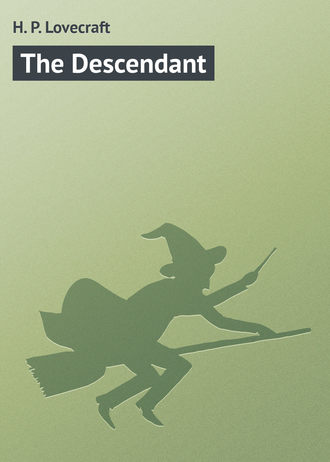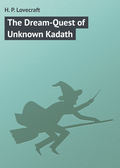
Говард Филлипс Лавкрафт
The Descendant
The one glimpse he had had of the title was enough to send him into transports, and some of the diagrams set in the vague Latin text excited the tensest and most disquieting recollections in his brain. He felt it was highly necessary to get the ponderous thing home and begin deciphering it, and bore it out of the shop with such precipitate haste that the old Jew chuckled disturbingly behind him. But when at last it was safe in his room he found the combination of black-letter and debased idiom too much for his powers as a linguist, and reluctantly called on his strange, frightened friend for help with the twisted, mediaeval Latin. Lord Northam was simpering inanities to his streaked cat, and started violently when the young man entered. Then he saw the volume and shuddered wildly, and fainted altogether when Williams uttered the title. It was when he regained his senses that he told his story; told his fantastic figment of madness in frantic whispers, lest his friend be not quick to burn the accursed book and give wide scattering to its ashes.
There must, Lord Northam whispered, have been something wrong at the start; but it would never have come to a head if he had not explored too far. He was the nineteenth Baron of a line whose beginnings went uncomfortably far back into the past – unbelievably far, if vague tradition could be heeded, for there were family tales of a descent from pre-Saxon times, when a certain Lunaeus Gabinius Capito, military tribune in the Third Augustan Legion then stationed at Lindum in Roman Britain, had been summarily expelled from his command for participation in certain rites unconnected with any known religion. Gabinius had, the rumour ran, come upon a cliffside cavern where strange folk met together and made the Elder Sign in the dark; strange folk whom the Britons knew not save in fear, and who were the last to survive from a great land in the west that had sunk, leaving only the islands with the roths and circles and shrines of which Stonehenge was the greatest. There was no certainty, of course, in the legend that Gabinius had built an impregnable fortress over the forbidden cave and founded a line which Pict and Saxon, Dane and Norman were powerless to obliterate; or in the tacit assumption that from this line sprang the bold companion and lieutenant of the Black Prince whom Edward Third created Baron of Northam. These things were not certain, yet they were often told; and in truth the stonework of Northam Keep did look alarmingly like the masonry of Hadrian’s Wall. As a child Lord Northam had had peculiar dreams when sleeping in the older parts of the castle, and had acquired a constant habit of looking back through his memory for half-amorphous scenes and patterns and impressions which formed no part of his waking experience. He became a dreamer who found life tame and unsatisfying; a searcher for strange realms and relationships once familiar, yet lying nowhere in the visible regions of earth.






